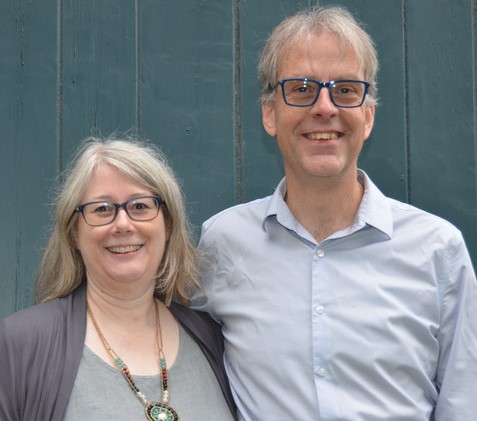Note: The following is an excerpt from a prayer letter/newsletter distributed by Joanne De Jong , a Mennonite Church Canada Witness worker in Ethiopia, on August 8, 2024.
I’ve been so sad. While we had our coffee this morning, under a make-shift tent on the street, we watched five young men help tear down their friend’s home at the order of the government. The city we live in is now a pile of rubble as hundreds (possibly thousands) of homes and businesses have been informed that they had 3-5 days to tear down the walls surrounding their properties, or else pay a fine or go to prison. Much worse, often those homes and businesses which stood immediately behind the walls were also ordered to be demolished.
Ethiopia is a nation of gates and walls so you never know what is behind them unless you are invited to enter the compound. We are often surprised to suddenly find ourselves in a beautiful park, a silk farm, or a farm yard as we cross the threshold. You never know what to expect. Now everything is exposed for all to see.
In Ethiopia, all land is owned by the government. At any time, they have the legal right to force you off the land. Even the Meserete Kristos Seminary was informed they had to tear down their border wall, the guard house at the front gate, and the gate itself to make way for a widened road. It is a beautification project.
Imagine you came home and the government had written on your door in red spray paint that you had to tear down your home or business and if it wasn’t done in 3-5 days, they would bulldoze it themselves and charge you? And then when you tore it down and rebuilt it, with no guarantee of compensation (sometimes partial compensation was promised), they informed you that you need to push it back further than they initially said. Any complaining lands you in jail. The emotional impact of tearing down your own home is palpable. And if you don’t remove the rubble from the land within a certain time frame, they fine you.
I’ve seen injustice but this is next level. What can we do? Locals say not to do anything. It’s not worth going to jail. But I sometimes wonder if it is. I feel powerless so I can’t imagine how they feel. When I pray my heart hurts as I see people who are already on the margins, losing their homes and/or livelihood. Locals seem resigned to their fate. In a neighbouring town, 5 people resisted and were shot and killed by police. Yesterday the Ethiopian Birr lost 30% of it’s value because the government put its currency on the open market. This will exacerbate the suffering. Due to high inflation, basic needs have been doubling and then doubling again and now it’s even worse. More violence seems inevitable.
Werner attended a peace conference in Uganda in June. It was called the Great Lakes Peace Initiative. All the speakers were Africans. Werner attended a workshop where the speaker, David Zac Niringiye, a retired assistant bishop of the diocese of Kampala of the Church of Uganda, said something shocking. “It really bothers me when Christians say they are the voice for the voiceless. If we speak for the voiceless, where is their voice? Who has the power? Rather, we should let the voiceless speak.” This lines up with the quote, “Nothing about us, without us, is for us” (Poverty Truth Commissions). In times of injustice, how can we be helpful but not take away the voices of those who are suffering? How can we help the voiceless to speak?
While Werner was in Uganda and in Ethiopia, I returned home to take care of some business and visit my children. It was a blessing to feel safe, to be understood, and to worship with familiar songs. I had every kind of food from orange Jello salad with carrots to an 8-course dinner with pairings. From a surprise lunch with a group of my favourite seniors to a birthday party at a pub where we raised our glasses and belted out songs by Great Big Sea. Preaching, praying with friends, meeting for coffee, laughing with my children, it was all great and I returned revived.
Until I saw the pile of rubble…







Leave a Reply
You must be logged in to post a comment.